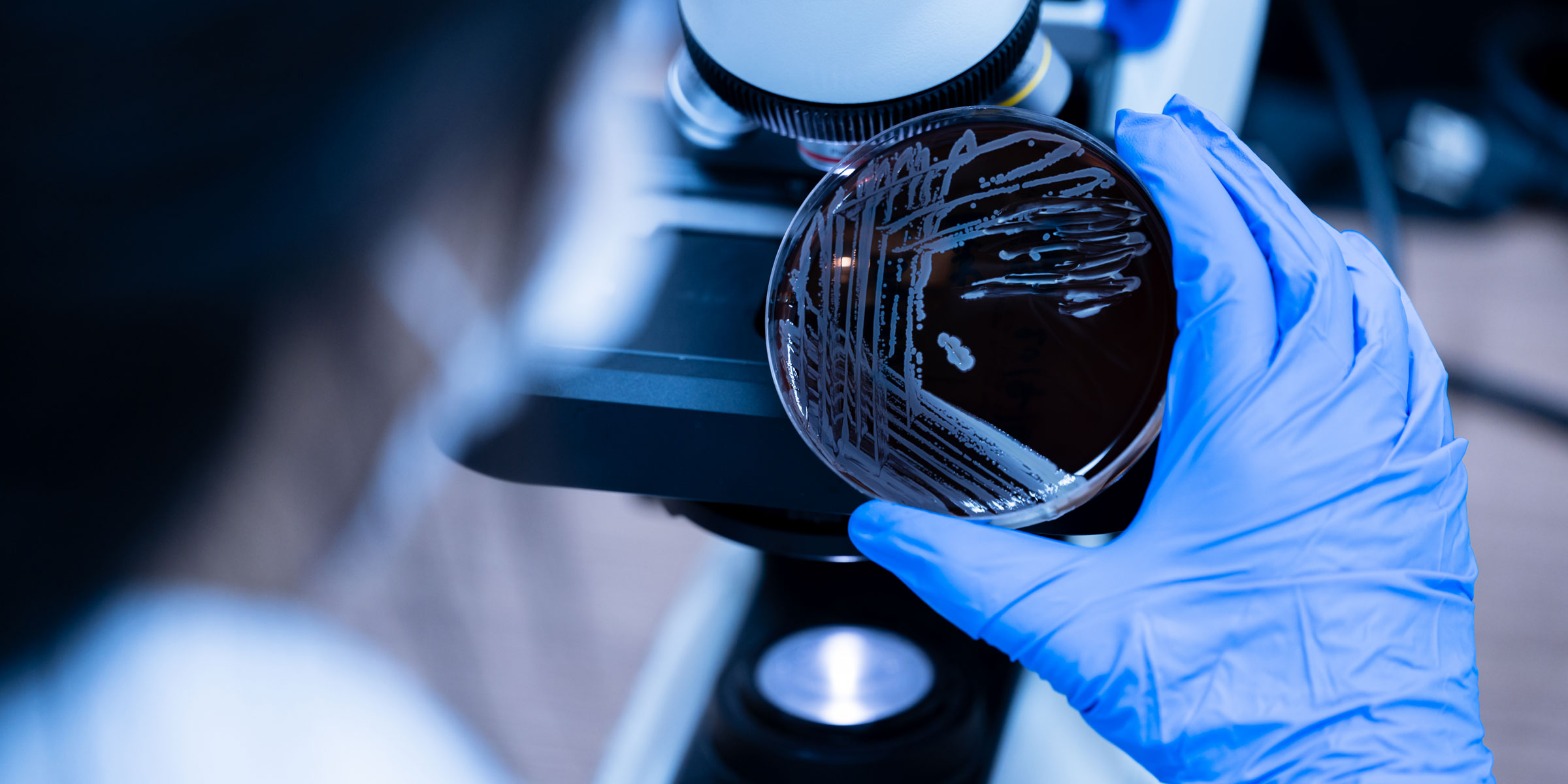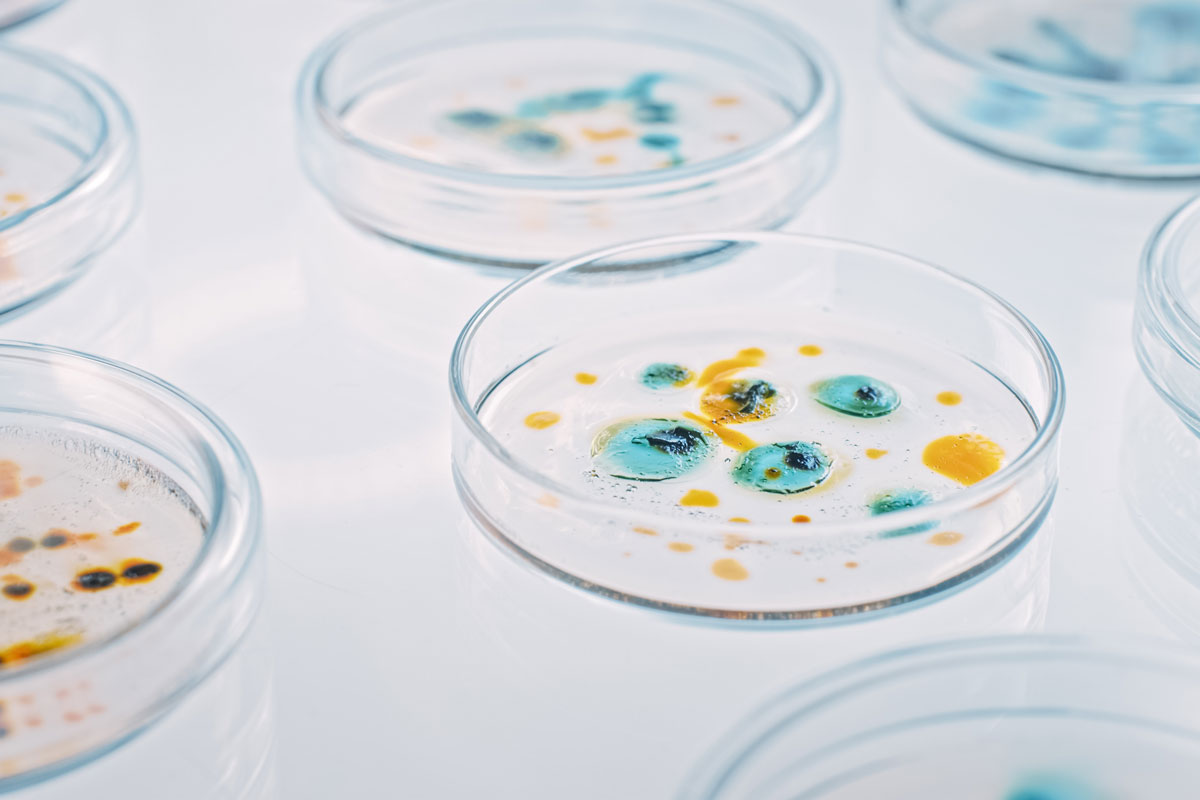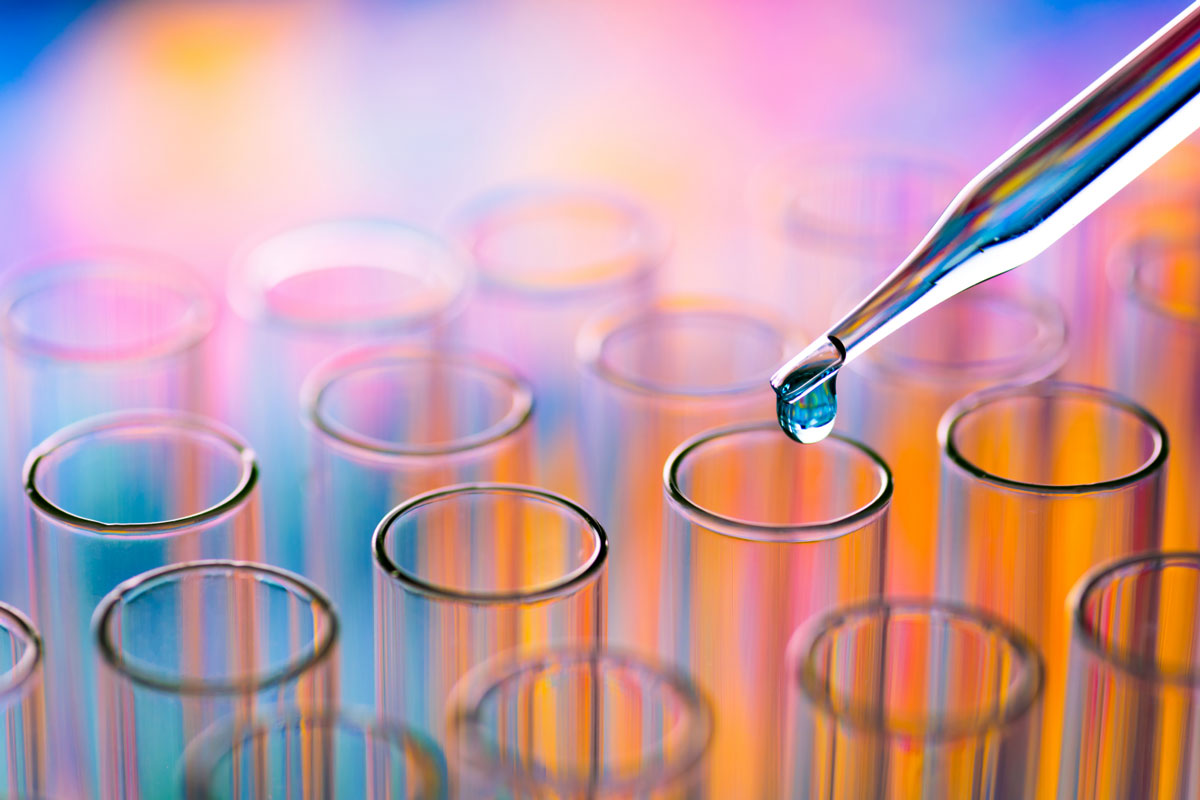
Research Themes
The overall scientific goal of the Cluster of Excellence ‘Microbiomes Drive Planetary Health’ is an in-depth understanding of the molecular, physiological, and ecological mechanisms that control microbiome composition and function across a broad array of highly relevant microbial ecosystems from the human gut to soils and the deep sea, which will link microbes to environmental and human health, i.e., to planetary health.
To achieve this goal we have identified three thematic focus areas for the CoE: Microbiome Interactions, Microbiome Perturbations, and Microbiome Monitoring and Interventions. Each of those themes and their associated research projects are presented below.
Research theme 1: microbiome interactions
All organisms function, grow, reproduce, and evolve in the context of complex interaction networks. It is interactions between organisms that shape natural communities into the ‘units’ that provide the plethora of ecosystem services we rely on for our planet’s and our own wellbeing. It is also interactions between organisms, or their breakdown, that lie at the heart of a range of diseases in plants, animals, and humans.
With the development of ever more sophisticated molecular tools, biological and medical research has followed a decades-long trend of ‘reductionism’, focusing most research efforts on understanding biological processes using a defined set of model organisms studied in isolation under controlled laboratory conditions. This reductionist approach has enabled breakthroughs in understanding how life functions but comes with the severe limitation that many of these insights are only relevant to the targeted organisms and under certain (often artificial) conditions. This, in turn, limits the clinical and environmental applications of these insights.
With our diverse team, we have the opportunity to unite world-class expertise in studying molecular and biochemical mechanisms, and complex interacting communities in natural and clinical settings, which will bring us toward a broadly relevant understanding of how organisms interact at unparalleled depth.
Thus, the key question in the first thematic area is: How is the composition and function of microbiomes shaped by interactions within and between microbiomes, between microbiomes and their hosts, between microbes and other organisms, and between microbiomes and their abiotic environment?
Those questions will be studied in the framework of Research Projects 1 and 2.
Project 1
Interactions in Underexplored Ecosystems
The project addresses microbiomes that are still poorly understood despite their clinical, environmental, and economic relevance. We explore (i) interactions within the human small intestine in health and disease, as well as (ii) shifting microbial interactions triggered by environmental invasive species acting as vectors for microbial pathogens.
WP 1.1 The Small Intestine: an Underexplored Habitat with Implications for Human Health
WP 1.2 The Influence of Invasive Species on Host-Associated Microbiomes

Project 2
Interdomain Interactions and Interaction Mechanisms
The unifying theme of Project 2 is understanding the consequences and mechanisms of interactions among highly divergent organisms. These interactions can range from symbiotic to parasitic and predatory and have wide-ranging consequences for the functioning of microbiomes and global biogeochemical cycles.
WP 2.1 Cross-Kingdom Interactions in the Ectomycorrhizal Symbiosis
WP 2.2 Control of Eukaryotic Microbial Populations by Viral Parasites

Research theme 2: microbiome pertubations
Microbiomes are complex communities that contribute essential services to the functioning of ecosystems and physiology of organisms. They are essential for all biogeochemical cycles and control many of the life- supporting systems for humans such as the purification of drinking and waste water, food production, and many more, but also because microorganisms have established relationships with almost every other living organism on Earth and at all levels of biological organization.
Perturbations of microbial communities, for example by variations in temperature or the availability of nutrients, are commonly occurring in all ecosystems, natural or man-made, and influence microbial growth, interactions, gene expression, and resulting environmental processes. Constantly occurring, small perturbations are referred to as environmental stochasticity and are thought to be among the main drivers of ecosystem dynamics.
While stochastic perturbations are among the most important natural factors that shape microbial communities, many human activities have led to large-scale and/or persistent disturbances that affect almost all microbiomes. The extent to which microbiomes or microbiome-host interactions are affected by anthropogenic disturbances depends on the severity and duration of the disturbance, and how often they recur.
Despite their importance, the effects of human environmental perturbations on the microbiome are rarely explicitly studied and therefore remain one of the most topical issues in global change and global health research. We therefore urgently need to develop a fundamental understanding of the effects such perturbations have on the structure and function of microbiomes and possible feedback.
Thus, the key questions in the second thematic area is how microbiomes respond to environmental perturbations and how these responses feed back to the environmental processes that have caused them.
Those questions will be studied in the framework of Research Projects 3 and 4.
Project 3
Chemical Perturbations and Microbiome Functioning
In Project 3, we will focus on two major groups of anthropogenic chemicals: pharmaceuticals (human-targeted, as well as antibiotics) and tire wear particles. We will investigate their impact in-situ on human- associated and environmental microbiomes by leveraging new methods partly developed by CoE members during recent years.
WP 3.1 Impact of Drugs on Microbiomes in Humans and Wastewater Treatment
WP 3.2 Impact of Emerging Pollutants on Microbiomes across Systems

Project 4
Microbiome Responses to Climate and Land Use Change
In Project 4, we will address the question of how climate changes such as global warming, elevated CO2, and altered precipitation, alone and in combination, affect the composition and function of microbiomes, and the interaction of microorganisms with each other and with their plant and animal hosts, including humans.
WP 4.1 Microbial Interactions under Climate Extremes
WP 4.2 Permafrost, Climate Change, and the Soil Microbiome – Climate Feedback

Research theme 3: microbiome monitoring and interventions
The ultimate test of our understanding of a complex system is whether we can manipulate it to produce a desired outcome. Microbiome composition has been linked with a wide array of diseases, and it is evident that the microbiome is a critical partner in human development, physiology, and pathologies. Likewise, environmental microbiomes are important in biogeochemical cycling, the greenhouse gas balance, and agriculture, and manipulation of environmental microbiomes has huge potential from enabling sustainable agriculture to combating climate change.
With improved conceptual understanding combined with state- of-the-art technologies, the time has come for novel microbiome-based interventions to improve human and environmental health. We will address four key aspects of microbiome-based interventions in humans and the environment in this research theme: enhanced monitoring, strain augmentation, strain promotion, and microbial activity modification.
Routine microbiome monitoring can be a powerful tool for precision medicine on two levels: on the individual level in fecal microbiota transplantation therapy and on the population level by developing enhanced wastewater monitoring of pathogens. Selective addition or removal of microbial strains can be achieved via probiotics or growth-promoting rhizosphere bacteria. Finally, specific microbial activities can be targeted by interventions rather than attempting to add or remove the microbe performing that activity.
Thus, the key question in the third thematic area is whether we can predict the outcome of microbiome manipulations and can use microbiome interventions to mitigate or reverse human alterations of planetary health.
Those questions will be studied in the framework of Research Projects 5 and 6.
Project 5
Microbiome Monitoring and Interventions for Human Health
Microbiome monitoring and precision microbiome modification hold tremendous potential for improving human health. In Project 5, we will focus on disease surveillance for improved public health, and on targeted interventions in inflammatory and metabolic diseases as well as cancer.
WP 5.1 Wastewater Microbiomes for Next-Gen Public Health Monitoring
WP 5.2 Microbiome Modification by Fecal Microbiota Transplantation

Project 6
Environmental Interventions
Project 6 aims to develop microbiome-targeted interventions improving environmental health and sustainability. These include improving the efficacy of crop nutrient use, enhancing carbon sequestration by microbes and selecting nutrients that promote the growth of beneficial microbes in both human and environmental microbiomes.
WP 6.1 Microbiome-Based Improvement of Nitrogen and Phosphorus Nutrition in Crop Production
WP 6.2 Microbiome-Enhanced Silicate Weathering
WP 6.3 Role of Selective Sulfur Nutrients across Human and Environmental Microbiomes

Fundamental Principles, Synthesis, and Modeling
A particular strength of this CoE is that we are fully committed to integrating our research within and between these three thematic areas described above. In this way, fundamental research can inform microbiome manipulation efforts, which in turn will highlight the potential and relevance of the fundamental microbiome principles we will unveil in our research program. To underpin this integration and synergy, we will invest in a module on Fundamental Principles, Synthesis, and Modeling.
The objective of the synthesis module of the CoE is to identify unifying principles of how microbiomes are structured and how they function in complex environments, from environmental to host-associated microbiomes. This objective will be approached by applying and modifying theory from general ecology or macroecology to complex microbiomes, and by exploring the complexity of microbiomes and their emerging properties and processes through mathematical modeling and other tools of complex systems science.
Thus, we hypothesize that there are basic rules of community dynamics rooted in fundamental principles of microbial life, such as growth, exchange of metabolites, co-evolutionary constraints, and ecological interactions. Improving our understanding of these rules will advance microbiome research across disciplines.
Those questions will be studied in the framework of Research Project 7.
Project 7
Fundamental Principles of Microbiome Dynamics
The complexity of microbial community behavior is shaped by the functions members can perform and by the distribution, complementarity, and redundancy of these functions. In Project 7, we will identify patterns that unite different systems and search for principles of microbiome dynamics that are shared across systems.
WP 7.1 Microbial Growth, Biomass and Carbon Use Efficiency in Soil
WP 7.2 Microbial Interaction Mechanisms and Networks in Complex Microbiomes
WP 7.3 The Effect of Oscillating Environmental Conditions and Perturbations on Microbiomes







